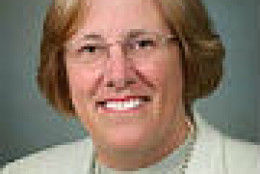Department of Homeland Security
-
The end-of-year holiday shopping season always seems to suck in a torrent of counterfeit merchandise, everything from faux Louis Vuitton baggage to fake car tires. It's also when federal agencies charged with stopping trade in counterfeits swing into high gear. A group of federal partners team up with industry and nonprofit organizations to warn consumers of holiday shopping scams. Bruce Foucart is the Acting Director of the Intellectual Property Rights Center within Immigration and Customs Enforcement. He joined Tom Temin on the Federal Drive to explain why they've stepped up their effort.
December 09, 2014 -
By DAVID ESPO and ANDREW TAYLOR Associated Press WASHINGTON (AP) — Key lawmakers weighed legislation to permit a reduction of benefits for up to 1 million retirees at economically distressed multiemployer pension plans, officials said…
December 09, 2014 -
By ERICA WERNER and ANDREW TAYLOR Associated Press WASHINGTON (AP) — Trying to avoid a showdown over immigration, House Republican leaders are moving to make a deal with Democrats to pass a spending bill that…
December 05, 2014 -
John Adler of the Federal Law Enforcement Officers Association wondered what impact President Barack Obama's executive order on immigration would have on the resources of CBP and ICE officers.
December 01, 2014 -
Congress comes back to work today to wrap up the 113th Congress. No one thinks streamlining oversight of the Homeland Security Department is one of the things they'll address in the lame duck session, but many people think it's something they should address -- at least soon. Janet Hale is one of those people. She's former Under Secretary for Management at DHS. On In Depth with Francis Rose, she explained how we got here.
December 01, 2014 -
The Federal Risk Authorization and Management Program will send a draft baseline standard for FISMA high systems around the government for comment in the next month. Matt Goodrich, the acting director of the FedRAMP program, said the high-impact baseline would apply only to non-classified technology systems as characterized under the Federal Information Security Management Act.
November 28, 2014 -
It's Thanksgiving and everyone should remember to thank federal employees for all the work they do on our behalf, says Jeff Neal, founder of ChiefHRO.com.
November 25, 2014 -
A major cyberattack on the nation's critical infrastructure will happen in the next 10 years, says Adm. Michael Rogers, director of the National Security Agency. He tells the House Permanent Select Committee on Intelligence the only way to handle the threat is to have a true partnership among the public sector, the private sector and academia. Chris Cummiskey is former acting undersecretary for management at the Homeland Security Department. He shared how to do that on In Depth with Francis Rose.
November 25, 2014 -
When things go boom, often the Homeland Security Department wants to know what it was. To do that it requires sophisticated explosives detection equipment. In fact, the idea is to detect the presence of explosives before they can be detonated. The DHS Science and Technology Directorate has just broken ground on a new lab for evaluating explosives detection equipment. Brian Krenzien, acting executive director of the Transportation Security Lab, joined Tom Temin on the Federal Drive with more.
November 25, 2014 -
At the beginning of next year, your agency could have a new definition of risk. The Office of Management and Budget says it may issue new guidance that requires an enterprise-wide view of risk. Rafael Borras is senior adviser at AT Kearney, and former undersecretary for management and acting deputy secretary of the Homeland Security Department. On In Depth with Francis Rose, he explained how to build an enterprise-wide risk-management strategy.
November 24, 2014 -
For the second consecutive year, the Department of Homeland Security earns a clean audit opinion. But there is still some work for the agency to do, according the agency's Office of Inspector General. Anne Richards, assistant inspector general in the Office of Audits at the Homeland Security Department, tells In Depth with Francis Rose about the lessons the agency learned last year and how they helped them stay clean this year.
November 21, 2014 -
Under President Obama's executive order on immigration, Department of Homeland Security Secretary Jeh Johnson released a slew of memos outlining the agency's push to reform its personnel structure, review premium pay, and better secure the U.S.-Mexico border.
November 21, 2014 -
In his review of the Department of Homeland Security, the DHS inspector general says the agency needs better monitoring of catching duplicative programs and acquisition. An independent auditor also outlines some flaws at DHS.
November 18, 2014 -
Wednesday was a productive day for Congress as the House sent two bills to President Barack Obama and a pair of critical DHS nominees head to the Senate floor.
November 13, 2014 -
Veterans Affairs Secretary Bob McDonald is making news with his plans to reorganize the Department of Veterans Affairs. Jeff Neal, senior vice president for ICF International, says the Secretary's moves are a good start because VA, like most large agencies, has its fair share of redundant organizations.
November 13, 2014







